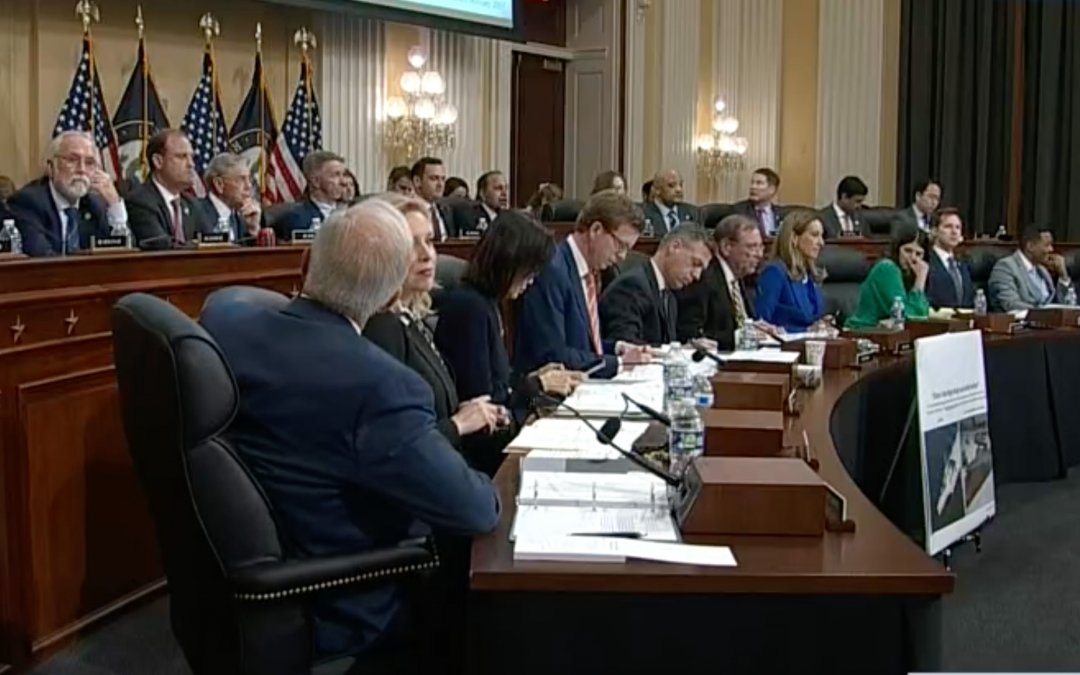WASHINGTON — The House Select Committee on China convened for the first time on Tuesday night and its members vowed to work together to improve the United States’ standing in economic competition with China.
“We must practice bipartisanship and avoid anti-Chinese stereotypes at all costs,” said Rep. Raja Krishnamoorthi (D-Calif.), the committee’s ranking member. “The CCP is counting on us to be divided. We must rise to the occasion and prove them wrong.”
As tensions with China have spiked on multiple fronts in recent weeks, committee members highlighted the importance of investing in U.S. manufacturing, technology and defense. Lawmakers and witnesses also said the U.S. needs to take a stronger stand against the human rights and censorship abuses being committed by the Chinese Communist Party (CCP) in China and beyond.
“We need to make it easier for Chinese people to connect with the outside world and see news and information flowing in safely without the digital panopticon of the Chinese Communist Party,” said Matthew Pottinger, former deputy national security adviser in the Trump administration. “I don’t think we’ve tried very hard.”
Former national security advisor H.R. McMaster testified and said the United States has “fallen behind” China in a wide range of areas relating to economic development. The committee’s ranking member Rep. Raja Krishnamoorthi (D-Ill.) noted that the United States’ trade deficit with China has increased dramatically since the U.S. normalized trade relations with China in 2000.
Scott Paul, president of the Alliance for American Manufacturing, testified that the U.S. “big company” investment in China grew tenfold over the last two decades and he condemned businesses, sports leagues and retail outlets who rely on Chinese labor and consumers for being “silent in China.” He also said allowing China to enter the World Trade Organization in 2001 was a “spectacular failure of conventional failure and elite opinion.”
“We have helped to feed the baby dragon of the CCP until it has grown into what it is now,” said Tong Yi, a human rights activist who provided compelling first-person testimony at the hearing.
While there was a focus on the past shortcomings, members of the committee made it clear that threats from China are greater now than ever before as it continues to not “play by the rules” and spends massive amounts bolstering its military.
“We may call this a strategic competition, but it’s not a polite tennis match,” said Rep. Mike Gallagher (R-Wis.), the committee’s chair. “This is an existential struggle over what life will look like in the 21st century. The most fundamental freedoms are at stake.”
The new select committee on China was formed in January after the House voted in favor of its creation 365-65.
Its first hearing was held just weeks after the U.S. shot down a Chinese spy balloon off the coast of South Carolina and just days after the Department of Energy said with “low confidence” that COVID-19 pandemic likely began with a lab leak in Wuhan, China. FBI Director Christopher Wray agreed with the Department of Energy’s assessment in an interview on Tuesday.
Another hot-button issue discussed in Tuesday’s hearing was the future of Tiktok in the U.S. The Chinese-owned social media app has come under scrutiny for the excessive amount of personal information it collects from its users. Though Tiktok’s parent company ByteDance has denied any association with China’s state intelligence services, Pottinger said the app poses “a real problem for our privacy and our national security.”
The House Foreign Affairs Committee voted across party lines Wednesday on a bill that would allow President Joe Biden to effectively ban Tiktok in the U.S. It’s unclear when House Speaker Kevin McCarthy will bring the bill to the floor for a vote.
While the China select committee’s purpose will likely be more investigative than legislative, Paul stressed that competing with China will require cooperation from both parties and all branches of government moving forward.
“It takes intent. For too long we did not have the intent,” Paul said. “There is no single policy that will change this. It is going to take an all-of-government approach.”


